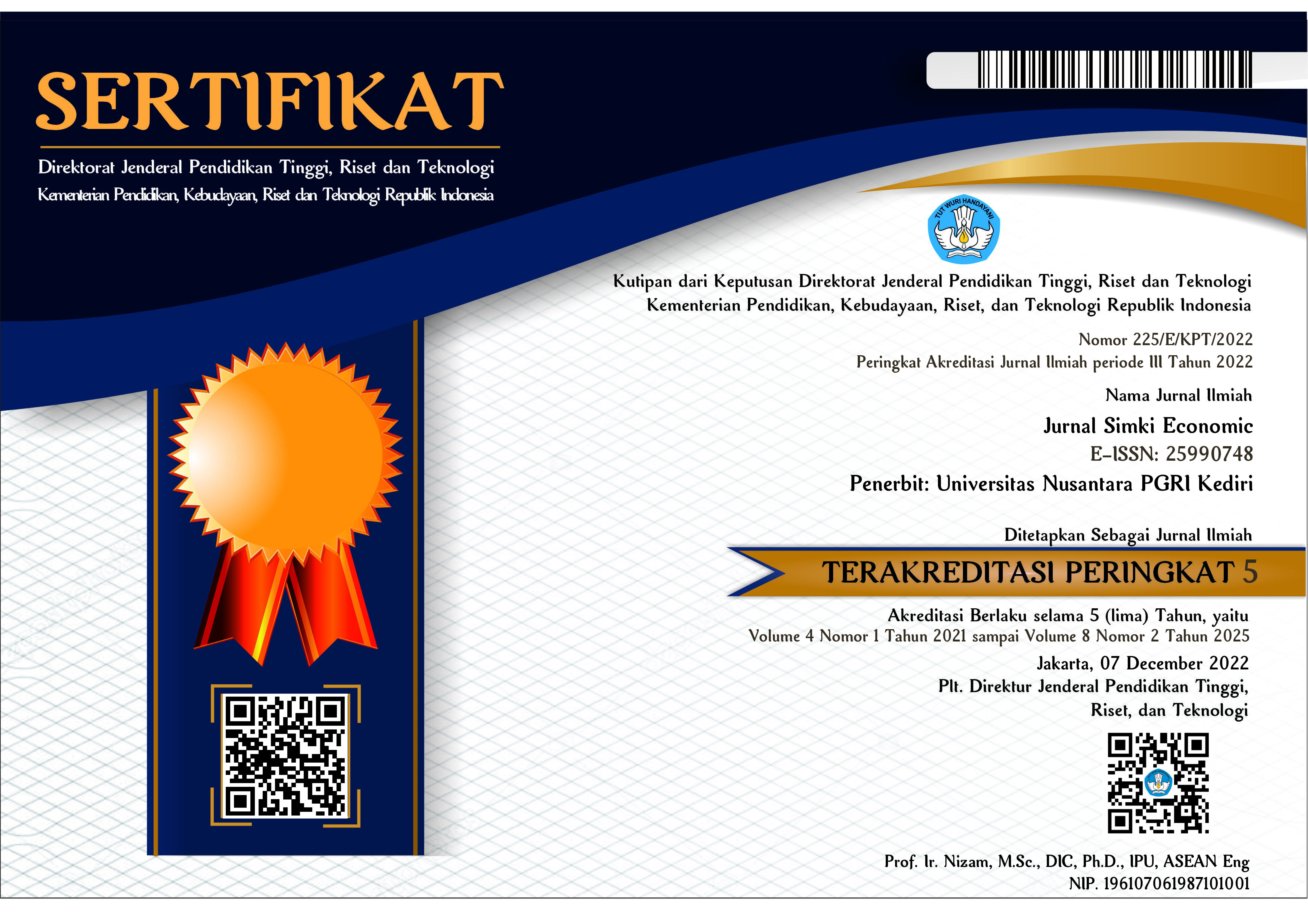Pengaruh Self Assessment System Terhadap Tax Evaison
 Abstract views: 1393
,
Abstract views: 1393
,
 PDF (Bahasa Indonesia) downloads: 1265
PDF (Bahasa Indonesia) downloads: 1265
Abstract
Tax is a mandatory public contribution to state revenues based on the law (can be imposed) by not receiving reciprocal services (contra-achievements) that can be directly shown and which can be used to pay for general state expenditures. This study aims to prove the effect of applying the Self Assessment Tax System to tax evasion actions. This research is motivated by the many cases that occur in this country regarding public actions and the lack of public awareness related to the level of compliance in taxation which is often a burden for taxpayers because it will reduce income so many taxpayers want low tax payments through tax avoidance. (tax avoidance) and acts of tax evasion (tax evasion). This study uses a descriptive or explanatory research method that uses a quantitative approach. The population of this study is all individual taxpayers (WPOP) registered with the Tax Service Office (KPP) Pratama Bantul. The samples taken in this study were individual taxpayers, other professional freelancers and entrepreneurs who were registered at the Tax Service Office (KPP) Pratama Bantul. Sampling was done using random sampling method. The results of this study can be concluded that the variable Self assessment system and tax audit has no effect on tax evasion.
Downloads
References
Cruz, Leonel da, N. W. S. S. dan N. N. K. Y. (2015). Aplikasi Theory of Planned Behavior dalam Membangkitkan Niat Berwirausaha Bagi Mahasiswa Fakultas Ekonomi Unpaz, Dili Timor Lest. E-Jurnal Ekonomi dan Bisnis Universitas Udayana. 12, 895–920.
Fatimah, S., & Wardani, D. K. (2017). FAKTOR-FAKTOR YANG MEMPENGARUHI PENGGELAPAN PAJAK DI KANTOR PELAYANAN PAJAK PRATAMA TEMANGGUNG. Akuntansi Dewantara, 4(1).
Friskianti, Y. (2014). Pengaruh Self Assessment System, Keadilan, Teknologi Perpajakan, Dan Ketidakpercayaan Kepada Pihak Fiskus Terhadap Tindakan Tax Evasion. 3(4), 543–552.
Herlangga, K., & Pratiwi, R. (2018). Pengaruh pemahaman perpajakan, self assessment system, dan tarif pajak terhadap tindakan penggelapan pajak (tax evasion) (studi kasus pada wajib pajak terdaftar di kpp pratama Ilir Timur Palembang). Jurnal, 28, 1–18.
Rahayu, S. K. (2013). Perpajakan Indonesia: Konsep & Aspek Formal. Graha Ilmu.
Suandy, E. (2014). Perencanaan Pajak., Edisi 5. Selemba Empat.
Sugiyono. (2017). Metode Penelitian Kuantitatif, Kualitatif dan R&D. Alfabeta.
Supriyono, R. A. (2016). Akuntansi keperilakuan. Gadjah Mada University Press.
Wahyuni, N. (2017). PENGARUH KESEHATAN KEUANGAN BANK TERHADAP NILAI INVESTASI MASYARAKAT DALAM SAHAM BANK. Jurnal Riset Akuntansi, 5(2). https://doi.org/10.34010/jra.v5i2.512
Copyright (c) 2022 Teguh Erawati, Riranti Desinta Pawestri

This work is licensed under a Creative Commons Attribution 4.0 International License.














